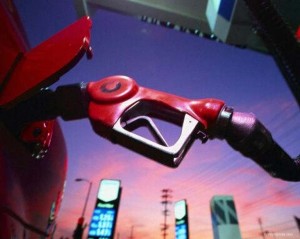With gas prices on the rise again, motorists are frantically searching for ways to improve their fuel economy. That’s convinced many drivers to downsize, whether switching from a big truck to a small car or simply shifting from a V-8 to a V-6.
But a new report suggests that you don’t have to trade in to save fuel. In fact, “decisions a driver makes beyond vehicle selection can improve vehicle fuel economy by up to 45%,” according to the study by the University of Michigan’s Transportation Research Institute.
The study is divided into three categories that consider the decisions a driver might make:
- Strategic, which covers the type of vehicle a driver purchases and how that vehicle is maintained;
- Tactical, which involves the routes a driver selects and how they load up the vehicle; and
- Operation, which covers driver behavior.
When it comes to strategic planning, more and more Americans have begun to downsize their vehicles –or their powertrains. While there aren’t many trading in F-Series pickups for Smart cars about half of those purchasing the big Ford truck are now opting for smaller V-6 engines, including the new Ford EcoBoost, rather than the big eight-bangers long popular in models like the F-150.
The study points to two government websites as reliable resources for auto shoppers. One is the place to track down EPA fuel economy estimates for all new vehicles (Click Here). But mileage can vary widely from what the federal test procedures generate, so the EPA also provides a second source where shoppers can compare real-world numbers provided by vehicle owners. (Click Here for that website.)
The good news for those who aren’t ready to trade in is that simple maintenance efforts, such as using the correct grade of oil, keeping air filters clean and replacing worn spark plugs can have a huge impact on mileage. Improperly inflated tires, for example, can result in as much as a 10% reduction in a car’s mileage. For more on automotive maintenance tips, Click Here. (http://www.fueleconomy.gov/feg/maintain.shtml)
When it comes to tactical behavior, simple steps like planning out a weekend of errands can significantly reduce fuel consumption – and save time. But there are other steps that motorists might not think of. Like carrying extra weight around in your car. Always keep the golf clubs in the trunk? Or maybe a bag of sand or dirt you’ve been meaning to unload in the garden? For every extra 100 pounds, reports UMTRI, you’re reducing fuel economy by 2%.
Aggressive driving, such as speeding, rapid acceleration and hard, last-minute braking, can reduce fuel economy by as much as 33%, according to the study. Speeding is another way to waste fuel. Federal data suggest that every 5 mph faster you drive over 60 mph is like paying an extra $0.29 a gallon for fuel.
And turn your car off if you’re idling, the study adds, suggesting that you’ll waste nearly a nickel a minute in fuel leaving your engine running unnecessarily.
To find out more about planning trips to save fuel, Click Here. And to see how your driving habits can hurt or help your mileage, Click Here.

